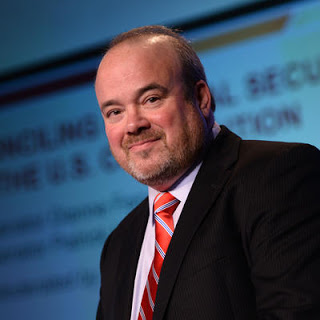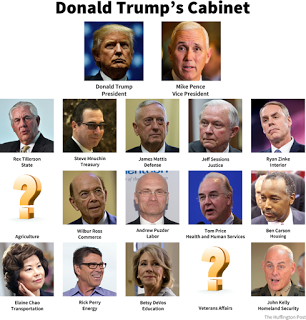Archive for the ‘Federalism’ Category
Shortly after Nikolas Cruz’s deadly rampage at the Marjory Stoneman-Douglas HS, the Broward County School Board decided it was going to tell the rest of the nation how to run their schools. In its arrogance, the Broward County School Board got together to lecture America. It isn’t because they’re smarter than us. It isn’t that they’re wiser than the rest of us. It’s because they think they’re entitled to tell us what’s best.
That’s what progressives do.
Something that progressives don’t do is accept responsibility. (See Sheriff Scott Israel.) Days after the slaughter of 17 innocents, Sheriff Israel told CNN’s Jake Tapper that he’d provided “amazing leadership.” Unfortunately, 14 students and 3 teachers were unavailable to respond. It isn’t just that “dead men tell no tales.” It’s that they don’t issue responses to crackpot sheriffs either. But I digress. Let’s return to the geniuses of the Broward County School Board.
After losing 17 students and teachers in a barrage of gunfire, the Broward County school board is livid and demanding an array of nationwide changes. Board members passed a 24-point resolution Tuesday, calling for Congress to ban assault weapons, require universal background checks and broaden the perimeters of school gun-free zones.
How dare these people lecture us on how to protect children in our schools. They don’t know our neighborhoods or students. How would they know what’s best for people half a nation away?
Let’s be straight about something. Let individual school districts determine what’s best for their students. They’re the local experts. It’s time to ignore blowhards like Sen. Bill Nelson:
If pandering was political gold, Sen. Nelson would be a senator for life. Let’s be clear. Sen. Nelson knows that anti-gun rights organizations are paying for the Parkland protests. Why would I listen to Michael Bloomberg or Moms Demand Action?
Rather, I’ll choose to contribute to a local conversation on what’s needed here in St. Cloud.
To: Larry Jacobs, Walter F. Mondale Chair for Political Studies at the University of Minnesota
From: Gary Gross, Uppity Peasant
Subject: The US Constitution
Dr. Jacobs, during your appearance on Almanac this past Friday night, you said that conservatives should be “on high alert” because President Trump didn’t mention the Constitution in President Trump’s Inaugural Speech. While that’s technically true in a narrowly defined way, it isn’t reality.
Early in President Trump’s Inaugural Speech, he stated “Today’s ceremony, however, has very special meaning because today, we are not merely transferring power from one administration to another or from one party to another, but we are transferring power from Washington, D.C. and giving it back to you, the people.” Perhaps you didn’t recognize this constitutional principle but I definitely noticed it. I wasn’t alone, either, because that constitutional principle is called federalism.
The Tenth Amendment says “The powers not delegated to the United States by the Constitution, nor prohibited by it to the States, are reserved to the States respectively, or to the people.” In other words, the things that aren’t affirmative responsibilities of the federal government are sent to the states or the people by the Tenth Amendment of the US Constitution.
Dr. Jacobs, it’s time you started reading the US Constitution so you don’t miss obvious constitutional principles like federalism.
Frankly, Dr. Jacobs, I’ll be thrilled if President Trump moves power out of Washington, DC. Based on the articles I’ve read, I think that’s quite possible.
Over the past few days, liberals have repeatedly quoted the phrase “that the office of President will never fall to the lot of any man who is not in an eminent degree endowed with the requisite qualifications.” Early in John Conyers’ op-ed, the aging Democrat, cites that quote, too.
What hasn’t gotten discussed is who determines what defines those “requisite qualifications” are. In this instance, Democrats insist that Donald Trump is lacking in those amorphous qualifications. That’s a rather risky proposition. Democrats literally insisted that Hillary was the most overqualified presidential candidate in history. Forgive me if I don’t trust their opinion, especially after watching Mrs. Clinton get a US ambassador killed by reducing the security forces in the country.
Forgive me if I think that Mrs. Clinton was the ultimate corrupt politician. As Secretary of State, Mrs. Clinton operated a pay-for-play scheme with her family’s foundation. I’m fairly certain that Alexander Hamilton didn’t think being corrupt was a “requisite qualification” for being commander-in-chief.
Since his election victory, President-Elect Trump has put together one of the most impressive cabinets in US history:
That suggests that he’s more than qualified to be this nation’s chief executive.
What’s interesting is that Democrats have only proposed eliminating the Electoral College. They haven’t talked about reforming the way states award their delegates. It isn’t surprising why. If electoral votes were awarded proportionally instead of on a winner-take-all basis, Trump would’ve won decisively.
Wouldn’t you love hearing Democrats explain why they’re opposed to such a reform? Recently and temporarily, Democrats have praised the principles of federalism. Those appeals are dishonest. Democrats’ love of federalism is as authentic as an atheist’s appreciation of Jesus.
It’s time for Democrats to stop whining and accept the fact that their nominee was a corrupt, cold woman who ran one of the worst campaigns in history. That’s why she got trounced in the vast majority of battleground states.
In Part I of this series, I wrote about the virtues of federalism. Now it’s time to talk about the negative things that happened when the Obama administration ignored the Constitution and the rule of law. Specifically, I’ll quote from Kim Strassel’s article about Scott Pruitt.
Picking up where I left off, let’s rejoin Strassel’s article where she wrote “Under the Clean Air Act, states are allowed to craft their own implementation plans. If the EPA disapproves of a state plan, it is empowered to impose a federal one—one of the most aggressive actions the agency can take against a state, since it is the equivalent of a seizure of authority. In the entirety of the presidencies of George H.W. Bush, Bill Clinton and George W. Bush, the EPA imposed five federal implementation plans on states. By last count, the Obama administration has imposed at least 56.” That’s where Pruitt comes in.
According to Strassel, much “of Mr. Pruitt’s tenure as Oklahoma’s AG was about trying to stuff federal agencies back into their legal boxes. Most of the press either never understood this, or never wanted to. When the media wrote about state lawsuits against ObamaCare or the Clean Power Plan or the Water of the United States rule, the suggestion usually was that this litigation was ideologically motivated, and a naked attempt to do what a Republican Congress could not—tank the president’s agenda.”
The next paragraph, Ms. Strassel wrote this:
The basis of nearly every one of these lawsuits was in fact violations of states’ constitutional and statutory rights— and it is why so many of the cases were successful. It was all a valiant attempt to force the federal government to follow the law. And it has been a singular Pruitt pursuit.
On issues of executive overreach, President Obama had a terrible record in the Supreme Court, at one point losing 13 straight 9-0 decisions. It will take time to tame the EPA. You can’t change the entire Agency culture with the blink of an eye. Here’s the good news:
In announcing his nomination, the president-elect took care to note that Mr. Pruitt was an “expert in constitutional law” and that his job would be to restore the “EPA’s essential mission.”
Which is exactly the reform the EPA needs. The agency doesn’t need a technically trained environmentalist at its head, since it is already bubbling over with green regulations. It doesn’t need a climate warrior, as Congress has never passed a climate law, and so the EPA has no mandate to meddle there. What it needs is a lawyer, one with the knowledge of how to cut the agency back to its proper role—restoring not just an appropriate legal partnership with the states, but also with other federal bodies. One who reminds agency staff that the EPA was not created to oppose growth and development.
Getting the EPA to live within its statutory and constitutional boundaries is a monumental responsibility. If Pruitt accomplishes a culture change before he leaves, he’ll have my vote for the greatest EPA administrator in history.
Technorati: Donald Trump, Regulatory Reform, EPA Administrator, Scott Pruitt, Restoring Federalism Task Force, Attorney General, Constitution, Republicans, Barack Obama, Executive Overreach, EPA Overreach, SCOTUS, Unanimous Decisions, Democrats, Election 2016
With tomorrow being Independence Day, it’s worthwhile to see which people care about our founding documents. The comments in this editorial indicate that the DFL either don’t understand the Constitution or they’re dismissive of it.
About 2 weeks ago, a district court ruled that the Next Generation Energy Act, aka the NGEA, violated the Interstate Commerce Clause of the US Constitution. Despite the unanimous ruling, Minnesota Gov. Mark Dayton is appealing the ruling. In his statement, Gov. Dayton said “I will continue to do everything in my power to defend the State of Minnesota’s right to protect the quality of the air our citizens breathe.”
The thing is that telling other states what they can’t do is something that’s beyond Gov. Dayton’s authority. That principle escaped one commenter who said “Of course, these same people oppose any clean energy preferring the spewing of pollution into our environment…even to the point of ignoring how some of our waters are polluted. I don’t want lead in my water. I don’t want my health endangered by pollution.”
First, the statement is BS. Conservatives love nuclear power, which is exceptionally clean:
The low-carbon electricity produced by such reactors provides 20 percent of the nation’s power and, by the estimates of climate scientist James Hansen of Columbia University, avoided 64 billion metric tons of greenhouse gas pollution. They also avoided spewing soot and other air pollution like coal-fired power plants do and thus have saved some 1.8 million lives.
And that’s why Hansen, among others, such as former Secretary of Energy Steven Chu, thinks that nuclear power is a key energy technology to fend off catastrophic climate change. “We can’t burn all these fossil fuels,” Hansen told a group of reporters on December 3, noting that as long as fossil fuels are the cheapest energy source they will continue to be burned. “Coal is almost half the [global] emissions. If you replace these power plants with modern, safe nuclear reactors you could do a lot of [pollution reduction] quickly.”
Indeed, he has evidence: the speediest drop in greenhouse gas pollution on record occurred in France in the 1970s and ‘80s, when that country transitioned from burning fossil fuels to nuclear fission for electricity, lowering its greenhouse emissions by roughly 2 percent per year.
Another commenter who is an attorney said “Congress has no authority to determine whether any state attorney general abused their discretion.” In most cases, that’s true. When a state AG is dealing with an issue of state law that affects only their state, the federal government should keep its nose out of that state’s business. The minute that AG’s decision affects multiple states or the AG potentially violates part of the US Constitution, Congress certainly has oversight authority.
Technorati: Mark Dayton, Environmental Activists, Lori Swanson, Attorney General, Next Generation Energy Act, Constitution, Interstate Commerce Clause, Federalism, Congressional Oversight
Donald Trump isn’t an idiot but he’s definitely ignorant. Yesterday, Trump criticized RNC Chairman Reince Priebus and the RNC for Colorado’s caucus system.
What’s apparent is that Donald Trump doesn’t pay attention to details. It’s apparent because he said “It’s a disgrace for the party. And Reince Priebus should be ashamed of himself. He should be ashamed of himself because he knows what’s going on.” That statement is exceptionally telling.
First, it’s telling because it’s clear that he doesn’t understand the concept of federalism. Having attended Minnesota’s precinct caucuses, their county conventions and other conventions, I’ve yet to hear of a time when the RNC dictated how we ran our conventions. It’s blindingly apparent that Trump doesn’t understand that each state has its own rules.
Perhaps more importantly, it’s clear that Trump wouldn’t know a strict constructionist judge if he met one. It’s apparent that Trump thinks that the federal government should make most of the decisions. Limited government conservatives cringe when they hear a politician who thinks that Washington needs more authority. Trump also said this:
It should go to a vote in Colorado like other places. … The best way to do it would be just a vote, should be a vote of the people. That’s the way it should be done. The delegate situation is a very unjust way of doing things.
Spoken like a man who prefers mob rule. Truer words were never spoken than these:
Asked if he would call for Priebus to step down should he become the nominee, Trump responded, “I haven’t given that any thought.”
The notion that Mr. Trump gives anything a thought is laughable. He’s the quintessential non-thinker. He’s the poster child of what happens when people don’t think things through.
Prior to Super Tuesday’s primaries and caucuses, Donald Trump’s ceiling of support seemed to be in the 35%-36% range. He won handily in New Hampshire, Nevada and South Carolina. It’s particularly noteworthy that those 3 states were open states where Democrats were allowed to cause mischief or where independents could vote.
Yesterday’s events were closed events, with only Republicans voting. This table shows yesterday’s results:
Combining the 4 events together, Sen. Cruz got 41% of the votes cast. Meanwhile, Trump got 33.3% of the vote.
I haven’t hidden my disgust with Trump. If I were king for a day, I’d banish him to Gitmo and throw away the key to his cell. I’ve got great company in not respecting Trump. Steve Hayes’ article lowers the boom on Trump, especially this part:
The worst of these moments may have come when Trump mocked the disability of a journalist who had criticized him. At a rally in Sarasota last November, Trump was discussing Serge Kovaleski, a reporter for the New York Times. “The poor guy, you’ve got to see this guy,” Trump said, before flailing in a manner that resembled a palsy tremor. Kovaleski suffers from arthrogryposis, a congenital condition that affects the movement and positioning of his joints.
When Trump was criticized, he said he couldn’t have been mocking the reporter because he was unaware of Kovaleski’s condition. That wasn’t true. Kovaleski had interviewed Trump a dozen times and said they had interacted on “a first-name basis for years.” Trump then accused Kovaleski of “using his disability to grandstand.”
This came up last Friday, as I drove my 8-year-old son to see the Washington Capitals play. I’ll be gone on his birthday, covering presidential primaries, so this was an early present.
My son and his older sister have followed the campaign, as much as kids their age do, and they’re aware that I’ve traded barbs with Trump. So we sometimes talk about the candidates and their attributes and faults, and we’d previously talked about Trump’s penchant for insulting people. On our drive down, my son told me that some of the kids in his class like Trump because “he has the most points,” and he asked me again why I don’t like the Republican frontrunner.
I reminded him about the McCain and Fiorina stories and then we spent a moment talking about Kovaleski. I described his condition and showed him how physically limiting it would be. Then he asked a simple question:
“Why would anyone make fun of him?”
Why indeed?
I’d flip this around a bit. I’d ask what qualities or policies would convince me to vote for Mr. Trump. In terms of national security policy or taxes, regulations, federalism, the Constitution and the rule of law, I find Mr. Trump utterly deficient. Listening to Trump answer a question on national security is torture. At times, he’s said that he’d “bomb the s— out of ISIS.” At other times, he’s said he’d talk Putin into taking out ISIS. Bombing the s— out of ISIS sounds great but that’s just part of the threat ISIS poses. That does nothing to stop ISIS from radicalizing Muslims in Europe or the United States. Apparently, Trump hasn’t figured that out, mostly because he doesn’t even have an elemental understanding of foreign policy.
On national security, Trump says he’ll be strong and frequently pronounces himself “militaristic.” But he doesn’t seem to have even a newspaper reader’s familiarity with the pressing issues of the day. He was nonplussed by a reference to the “nuclear triad”; he confused Iran’s Quds Force and the Kurds; he didn’t know the difference between Hamas and Hezbollah. The ignorance would be less worrisome if his instincts weren’t terrifying. He’s praised authoritarians for their strength, whether Vladimir Putin for killing journalists and political opponents or the Chinese government for the massacre it perpetrated in Tiananmen Square. To the extent he articulates policies, he seems to be an odd mix of third-world despot and naïve pacifist.
Like Steve Hayes, I’m a proud member of the #NeverTrump movement. While pundits like Sean Hannity and Andrea Tantaros talk about Trump like he’s a conservative god, I won’t. That’s because I care more about the principles that make conservatism and capitalism the most powerful forces for positive change.
Why anyone would vote for a disgusting, immoral liberal like Donald Trump is mind-boggling. Personally, I won’t.
Technorati: Donald Trump, Serge Kovaleski, National Security, Open Primaries, Ted Cruz, #NeverTrump, Conservatism, Capitalism, Steve Hayes, Election 2016
According to this article, Donald Trump opted out of speaking at CPAC because he “will be in Witchita, Kanasas for a major rally on Saturday prior to Caucus.” Don’t criticize my spelling of Wichita, Kansas. I just copied/pasted the quote from Trump’s statement. Apparently, making America great again doesn’t mean you’ve passed a fifth grade spelling class.
The implication of the Trump campaign’s statement was that Trump simply had to cancel his CPAC speech to win in Kansas. So much for that myth:
Will Katrina Pierson, Trump’s mouthpiece, insist that Trump had to cancel his speech to preserve a resounding defeat? Surely, she can’t argue it was because Mr. Trump was competitive.
UPDATE: With 23% in, Sen. Cruz leads Mr. Trump 49.0%-26.0%. Trump has closed the gap from 25.8% to 23%.
Trump skipped CPAC because he anticipated getting booed frequently during the speech. That isn’t new for Trump. What’s new is that he can’t blame getting booed by lobbyists. Everyone knows that CPAC isn’t filled with lobbyists. It’s filled with activists, many of whom are young and idealistic. The truth is that Trump doesn’t like conservative principles.
Trump has frequently talked about making the federal government run better. That isn’t a conservative principle. Limited government conservatives want as many responsibilities and decisions dealt with at the state, local or family level. Conservatives don’t have faith in the federal government getting things right. They’d rather have local units of government make decisions than have the federal government put together a one-size-fits-all plan that isn’t a solution.
UPDATE II: With 61% in, Sen. Cruz leads Trump 51.1%-24%, with Sen. Rubio getting 14.5% and Kasich getting 9%. That pretty much verifies, not that there was much doubt, that Trump skipped CPAC because it would’ve looked bad for him to get loudly booed at the biggest conservative event before the convention.
UPDATE III: It’s official. Cruz wins the Kansas caucus.
Technorati: Donald Trump, Katrina Pierson, CPAC, Ted Cruz, Kansas Caucus, Limited Government Conservatism, Federalism, Conservative Activists, Republicans, Election 2016
Since news broke that Supreme Court Justice Antonin Scalia had died Saturday, people have buzzed about whether President Obama would nominate a replacement (he will) and whether the Senate will confirm a nominee (they won’t.) While this will sound a little dramatic, the truth is that this pick has the potential of changing the shape of the nation.
The truth is that past liberal courts haven’t cared about the text of the Constitution. Whether you agree or disagree with Roe v. Wade, the Supreme Court didn’t have the authority to decide that lawsuit. It wasn’t a federal issue. State legislators and governors should have been given time to figure out how their state wanted to deal (or not deal) with the issue. There was nothing in the Constitution that said the federal government had the right to get involved. If the federal government wanted to get involved, Congress, not the Supreme Court, should have dealt or not dealt with the issue.
Since the right to an abortion isn’t found anywhere in the Constitution, that means it’s a political issue. It isn’t a judicial issue until legislation is written and a bill is signed into law. The fact is that the Warren Court didn’t respect the principle of federalism because that court didn’t respect the states. Too frequently, the Warren Court saw the federal government as the sole authority on issues.
That belief stands in total contrast with the Founding Fathers’ beliefs. The Founding Fathers believed that states, local units of government and individuals should make the vast majority of decisions. That’s the underlying principle behind federalism.
In the past, liberal courts haven’t seen fit to rule that the Second Amendment didn’t apply to individuals. They’ve argued that it applied exclusively to militias. Then liberal lawyers argued that the Second Amendment is essentially void because we aren’t protected by militias anymore.
The next justice will either decide that the people who wrote the Constitution thought things through, debated the pros and cons of each provision in the Constitution, then voted on whether each provision was worthy of being included in the Constitution and the Bill of Rights.
The Founding Fathers didn’t deal with trendy things. They wrote the Constitution to stand the test of time. They wanted to make it impossible for a dictator to control the nation. That’s why they insisted on including checks and balances into everything they put into the Constitution. They understood the value of deliberation and negotiation. They understood the importance of placing limits on government, too.
The Warren Court and, to a lesser extent, the Rehnquist Court issued rulings that allowed government to overrule the wishes of the governed. The last thing freedom-loving people should want is a nation ruled by the judiciary. Far too often, the Supreme Court created rulings from their imagination. Such is the case with Wickard v. Filburn.
At issue in Wickard v. Filburn was whether Congress could “regulate the production of wheat intended for personal use and not placed in interstate commerce” and whether “Congress could regulate trivial local intrastate activities that have an aggregate effect on interstate commerce via the commerce power.” The Supreme Court ruled that Congress could regulate farm production even if those products never crossed from one state to another. In fact, that court ruled that the federal government had the right to regulate crop production even though the crops never left the farmer’s land.
There’s no justification for the federal courts to get involved because this was a local issue. Prior to this ruling, the federal government only used the Interstate Commerce Clause to regulate commerce that left one state and went to another state. Wickard v. Filburn opened the floodgates that provided the precedent for other federal intrusions into matters that were supposed to be dealt with at the state level.
Scott Pruitt, Oklahoma’s attorney general, distinguished himself in writing this op-ed in the Wall Street Journal. This paragraph is especially inspirational to this federalist:
Declining to establish a state exchange allowed Oklahoma to voice its strong political opposition to the Affordable Care Act as a whole, as well as to make a statement that it wanted neither the large-employer mandate nor the individual mandate to have effect within its borders. That was the trade-off. Oklahoma declined the premium tax credits, but freed itself of those mandates, and that was a choice the state was happy to make.
The states aren’t imbeciles that need the federal government’s protection from themselves. They’re co-equal sovereign governments quite capable of making decisions for themselves. In the early 1990s, the federal welfare programs were out of control. States like Arkansas, Massachusetts, Michigan and Wisconsin started experimenting on welfare. First, they got waivers from HHS giving them the authority to experiment.
Thanks to their experimentation, they improved millions of people’s lives.
Another point worth making is that the ACA, aka Obamacare, is an experiment in anti-federalism. Rather than letting states experiment, President Obama pushed a one-size-fits-all plan down our throats. Scott Pruitt and Oklahoma asserted their rights to make their own decision as allowed by the ACA. It might be that Oklahoma made the wrong decision but it’s their decision to make. The fact that they made an informed choice is proof that they weren’t coerced.
In the original Obamacare lawsuit NFIB vs. Sebelius, the Supreme Court ruled that Medicaid expansion was unconstitutional because the ACA didn’t give the states of opting out of Medicaid expansion. The fact that Oklahoma said no, according to Pruitt, made their decision based on the trade-off of not getting IRS subsidies in exchange for not dealing with the individual and employer mandates. That’s a rational choice, something that wasn’t there with Medicaid expansion.
Third, this sort of federal program isn’t antithetical to federalism, it is federalism. As we explained in our amicus brief to the court, this carrot-and-stick approach is found in dozens of federal programs sprinkled throughout the United States Code. The states are not children that the federal government must paternalistically “protect” from the consequences of their choices by rewriting statutes. In our constitutional system, states are free to make decisions and bear the political consequences, good or bad, of those choices.
Frankly, I’d rather trust decisions made at the state level than decisions made by a DC politician or bureaucrat. In fact, it wouldn’t take more than a nanosecond or 2 to make that decision for me.
Technorati: Scott Pruitt, Oklahoma, Attorney General, Federalism, Medicaid Expansion, Individual Mandate, Employer Mandate, IRS Subsidies, King v. Burwell, NFIB v. Sebelius, Anthony Kennedy, SCOTUS, Affordable Care Act, Obamacare






